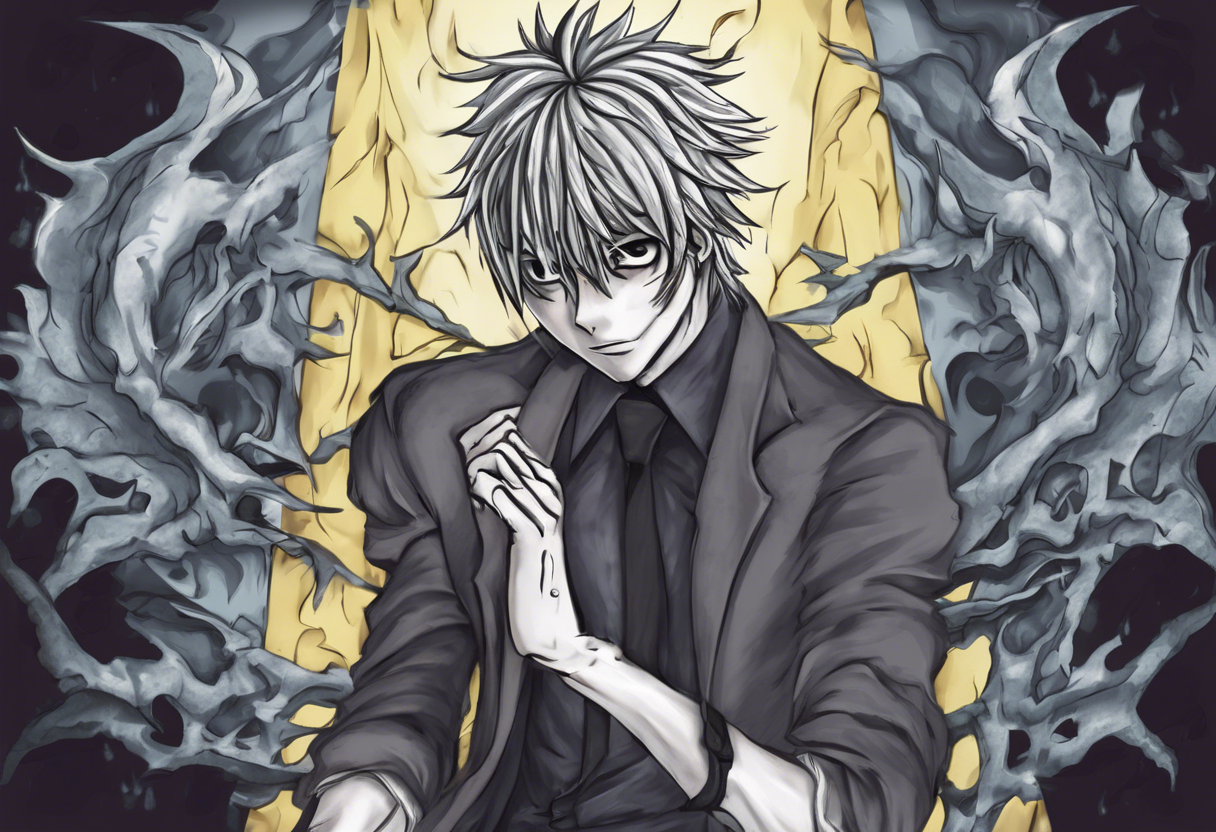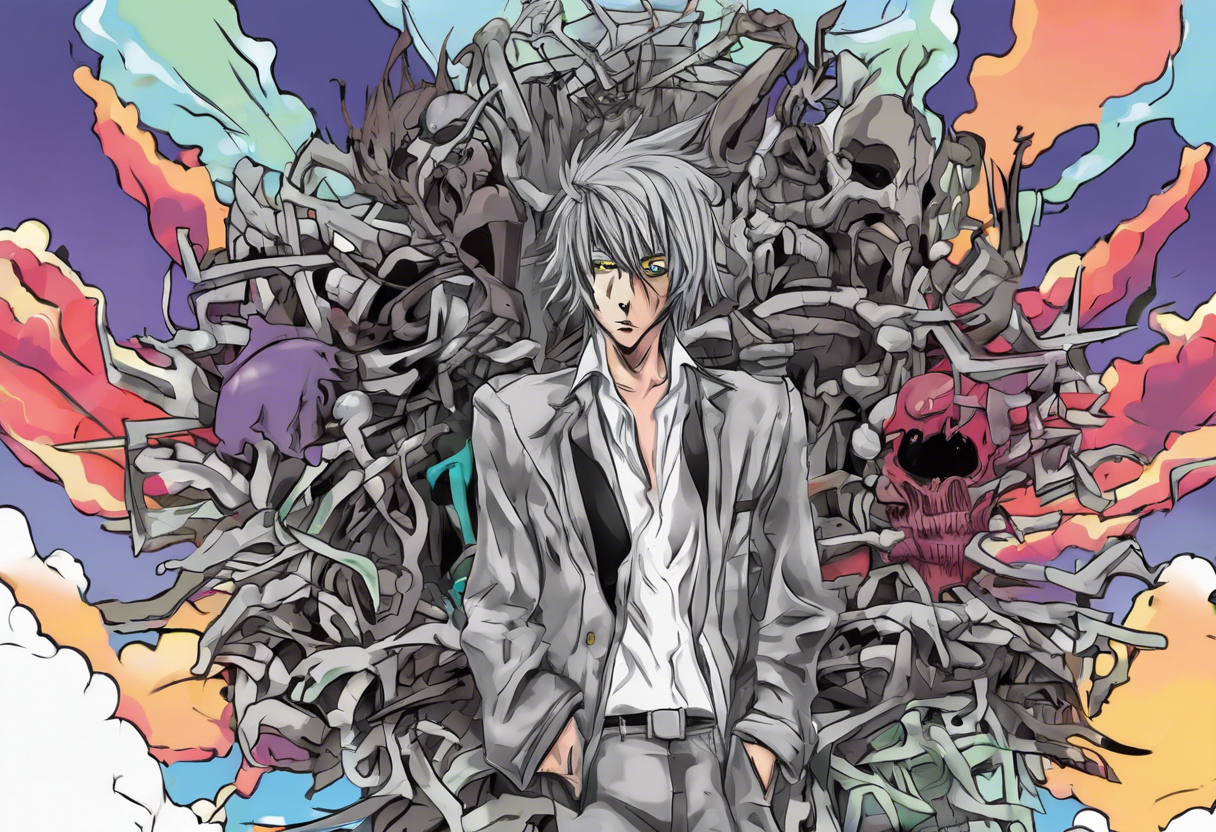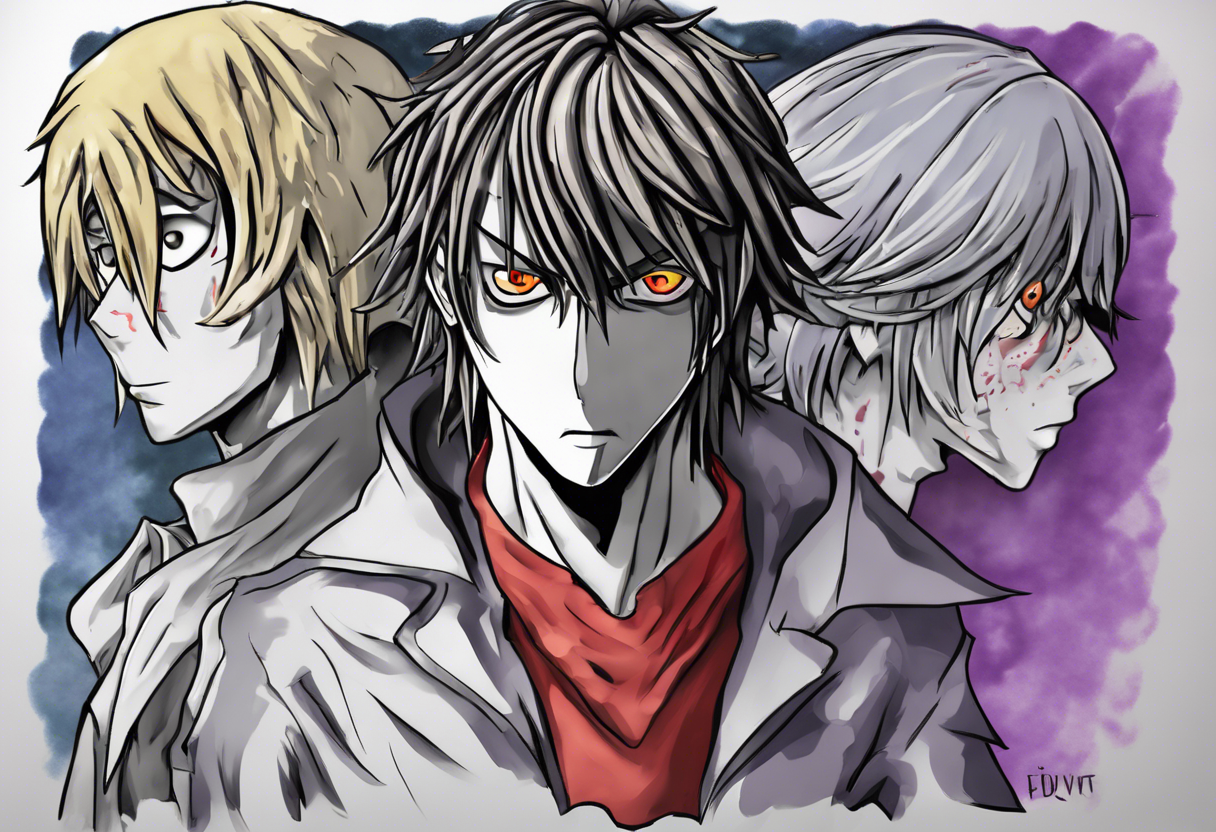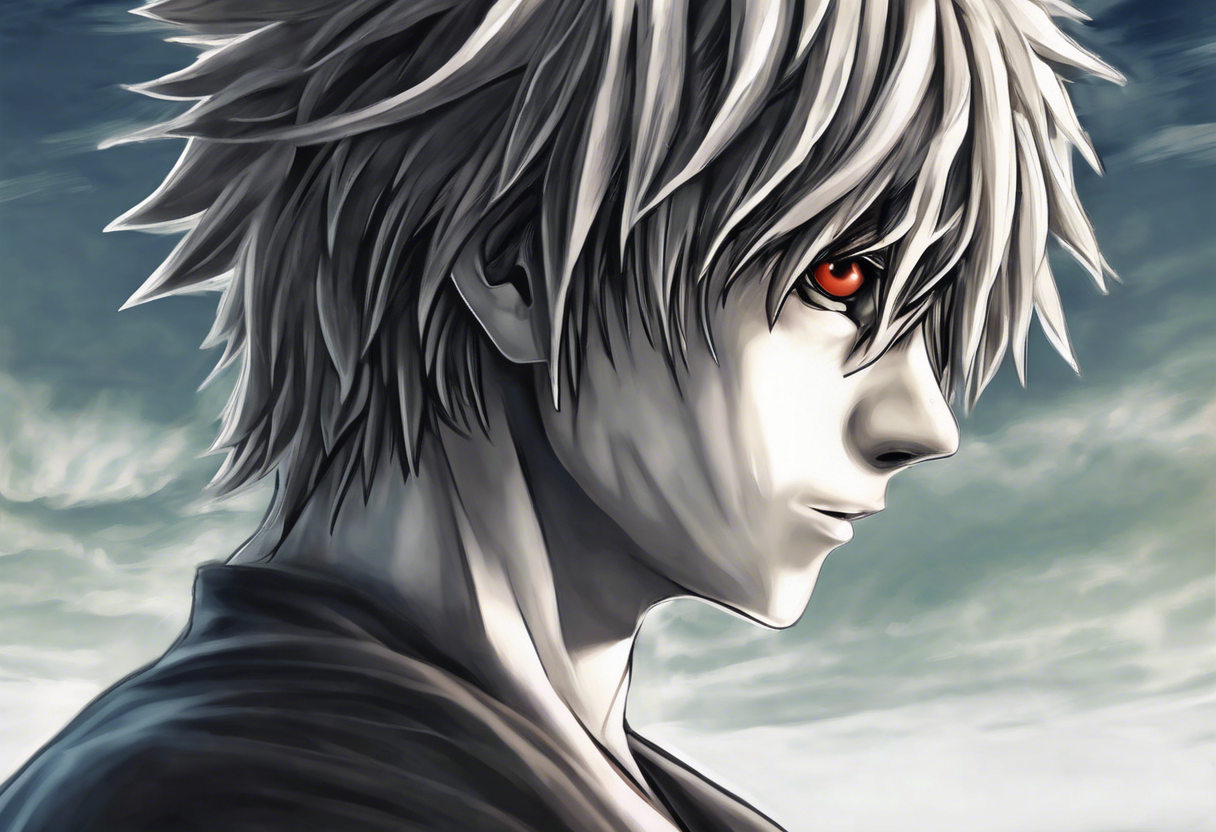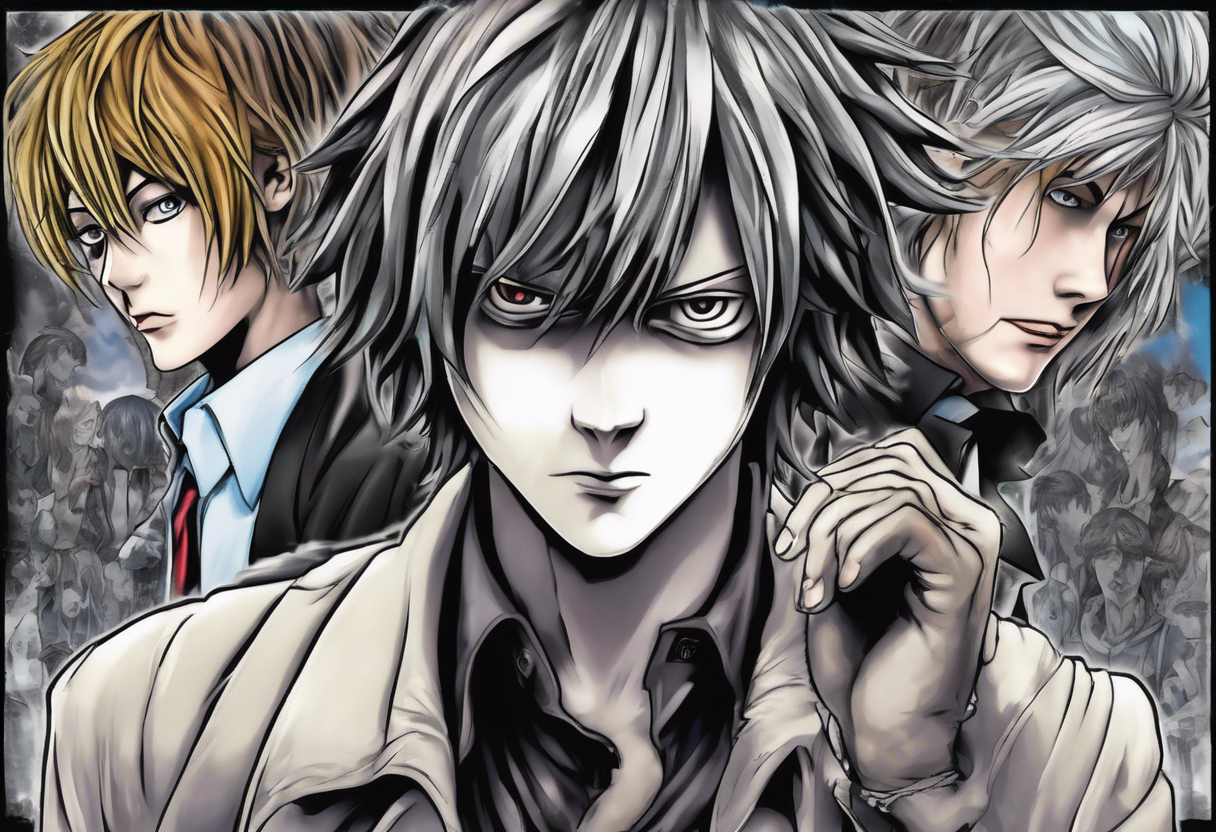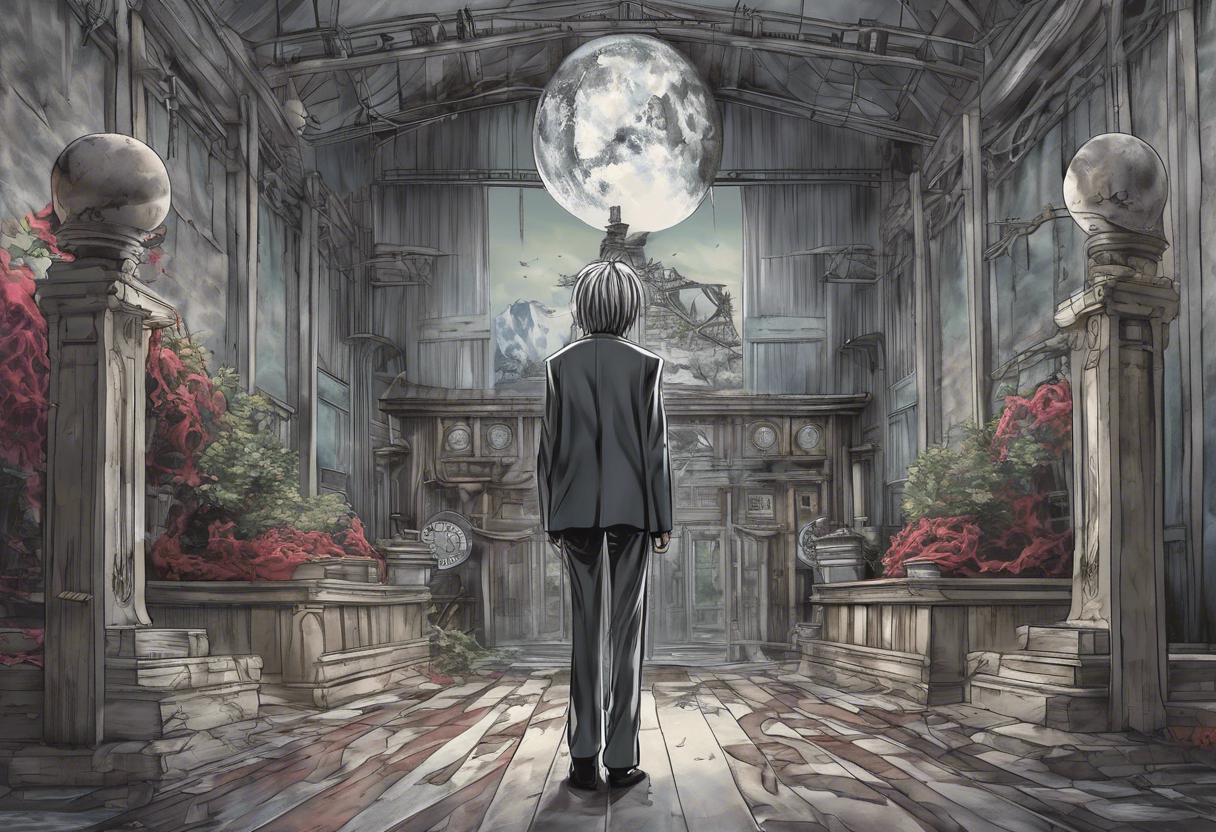Contents
Overcast: A Critical Analysis within the Death Note Series
Introduction
"Overcast," the seventh episode of the anime series Death Note, is a pivotal installment in the gripping narrative of Light Yagami and his cat-and-mouse game with the genius detective L. Directed by Tomohiko Itō and written by Shōji Yonemura, this episode is part of the larger Death Note series, which was adapted from the manga of the same name by Tsugumi Ohba and illustrated by Takeshi Obata.
The Death Note anime, produced by Madhouse and co-produced by Nippon Television, Shueisha, D.N. Dream Partners, and VAP, began airing on October 4, 2006, and concluded on June 27, 2007, with a total of 37 episodes[2]. "Overcast" originally aired on November 15, 2006, and is notable for its intense plot twists and character developments.
What sets "Overcast" apart is its masterful handling of suspense and the intricate web of strategies and counter-strategies woven by its characters. The episode is a testament to the series’ ability to maintain high levels of tension and intellectual engagement, making it a standout within the psychological thriller genre.
Plot Summary
In "Overcast," Light Yagami attempts to eliminate Naomi Misora, a former FBI agent who has been investigating the Kira case and is getting close to uncovering his identity. However, Light’s plan to use the Death Note to kill her fails unexpectedly, leading to a series of complex and tense events.
The episode delves into the psychological battle between Light and L, who is increasingly suspicious of Light’s involvement in the Kira murders. The setting shifts between the Yagami household, where Light’s family is under surveillance, and the investigative team’s headquarters, where L and his team are piecing together clues.
Key characters in this episode include Light Yagami, L, Naomi Misora, and Ryuk, the shinigami who dropped the Death Note in the human world. The major conflict revolves around Light’s attempt to maintain his secret while L closes in on him, and the unexpected failure of the Death Note, which adds a layer of unpredictability to the narrative[1].
Themes and Symbolism
"Overcast" explores several central themes that are integral to the Death Note series. One of the primary themes is the morality of justice and the consequences of playing god. Light’s actions are driven by his belief in a utopian society without crime, but this episode highlights the flaws in his logic and the unpredictability of human behavior.
The theme of deception and manipulation is also prominent. Light’s use of the Death Note and his elaborate plans to deceive those around him are mirrored by L’s own methods of gathering information and testing suspects. This cat-and-mouse game symbolizes the eternal struggle between good and evil, with each side employing cunning and intelligence to outmaneuver the other.
The character of Ryuk, the shinigami, serves as a symbol of the supernatural and the unpredictable nature of fate. His presence and actions often disrupt the plans of both Light and L, adding an element of chaos to the narrative[2].
Cultural Impact
"Overcast" and the broader Death Note series have had a significant cultural impact since their release. The series was widely acclaimed for its complex characters, intricate plot, and philosophical themes, attracting a large and dedicated fan base.
The series was licensed by Viz for distribution in North America, marking a significant milestone as it was one of the first well-known Japanese anime properties to be made legally available for download in the United States while still airing in Japan[2]. This move helped to expand the series’ global reach and contributed to its cultural significance.
Death Note has influenced numerous other anime and manga series, and its themes and characters have been referenced in various forms of media. The series’ impact on popular culture is evident in its enduring popularity and the continued discussion and analysis of its themes and plot by fans and critics alike.
Critical Reception
"Overcast" and the Death Note series received widespread critical acclaim upon release. Critics praised the series for its intelligent writing, complex characters, and the way it maintained high levels of suspense throughout.
The episode itself has been praised for its masterful plot twists and the way it adds depth to the characters and their motivations. Fans have noted the episode’s ability to balance action, suspense, and intellectual engagement, making it one of the standout episodes of the series[1].
However, some critics have noted that the series’ pacing can be slow at times, and the complexity of the plot may be overwhelming for some viewers. Despite these minor criticisms, the series and the episode "Overcast" have been consistently rated highly by both critics and audiences.
Legacy
The legacy of "Overcast" and the Death Note series is profound. The series continues to inspire filmmakers, writers, and artists with its complex characters, intricate plot, and philosophical themes. It has become a benchmark for psychological thrillers in anime and has influenced a generation of creators.
The series’ exploration of morality, justice, and the human condition continues to resonate with audiences, making it a timeless classic in the world of anime. The enduring relevance of Death Note is evident in its continued popularity and the ongoing discussions and analyses of its themes and plot.
In conclusion, "Overcast" is a pivotal episode in the Death Note series, showcasing the series’ ability to maintain high levels of suspense and intellectual engagement. Its themes, characters, and plot twists have made it a standout within the psychological thriller genre, and its cultural impact and legacy continue to be felt.

